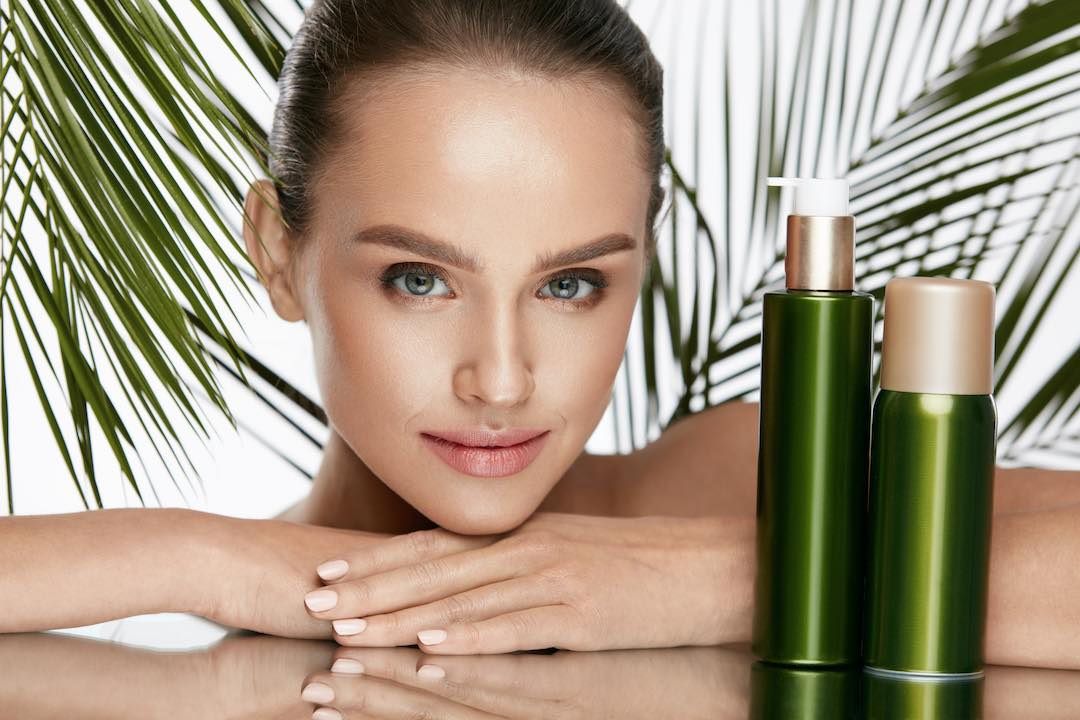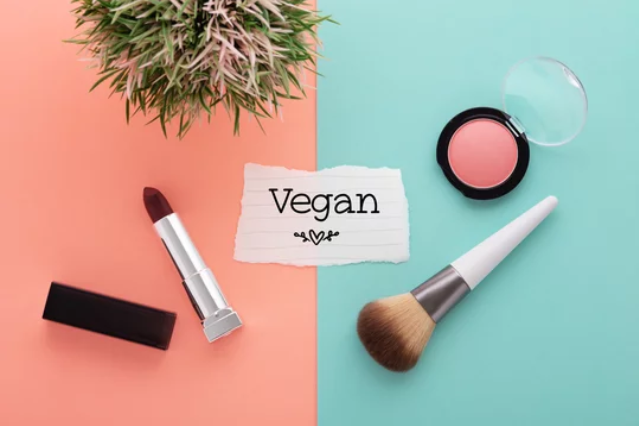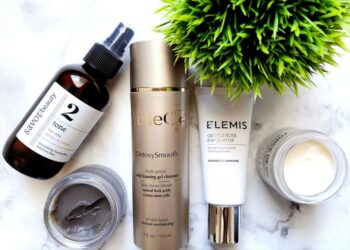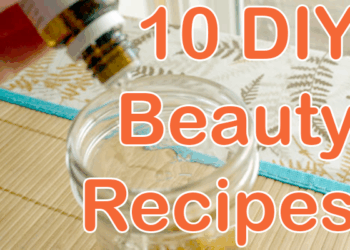The beauty industry is experiencing a profound transformation, driven by an escalating global consciousness towards ethical consumption and environmental responsibility. At the forefront of this movement is the remarkable surge in popularity of vegan cosmetics. No longer a niche market, these products represent a powerful shift, offering consumers beauty solutions free from animal-derived ingredients and, crucially, free from animal testing. For individuals seeking to align their beauty routines with their values, understanding the intricacies and benefits of vegan cosmetics is paramount. This burgeoning demand makes “vegan cosmetics” a highly sought-after search term, a vital topic for content creators aiming to maximize Google AdSense revenue through informative, engaging, and meticulously researched content. This comprehensive guide will delve deep into the world of vegan beauty, exploring its core definitions, the compelling reasons behind its growth, common ingredients, certification processes, and how embracing this ethical choice transforms not only your beauty regimen but also contributes to a more compassionate and sustainable world.
Defining Vegan Cosmetics: Purity and Principles
At its core, vegan cosmetics refers to beauty products that contain no animal-derived ingredients or by-products. This definition extends beyond the obvious, such as meat or dairy, to include less apparent components often found in conventional beauty items. Furthermore, true vegan certification often implies that the product, and its individual ingredients, have not been tested on animals at any stage of development. This dual commitment to cruelty-free and animal-free formulations sets vegan cosmetics apart.
Key characteristics that define truly vegan cosmetics include:
- Absence of Animal-Derived Ingredients: This is the foundational principle. Products must be formulated without any substance sourced from animals.
- Cruelty-Free Status: While “vegan” refers to ingredients, “cruelty-free” refers to the absence of animal testing. Many consumers seek both, and reputable vegan certifications often encompass this.
- Ethical Sourcing: Brands committed to vegan principles often extend their ethics to responsible and sustainable sourcing of plant-based and mineral ingredients.
- Transparency: Reputable vegan brands tend to be transparent about their ingredient lists and manufacturing processes, building trust with ethically-minded consumers.
Understanding this precise definition helps consumers navigate a market increasingly flooded with “natural” or “plant-based” claims, ensuring they make choices that genuinely align with their values.
The Compelling Rise of Vegan Beauty: Why Now?
The exponential growth of the vegan cosmetics market is not a mere coincidence; it’s a reflection of evolving consumer priorities and heightened global awareness. Several interconnected factors fuel this powerful trend.
A. Ethical Awakening and Animal Welfare Concerns
The most significant driver behind the vegan movement, including in cosmetics, is a growing ethical stance against animal exploitation.
- Rejection of Animal Testing: Consumers are increasingly repulsed by the practice of animal testing, viewing it as inhumane and unnecessary. Advancements in in-vitro testing methods and human tissue models offer viable alternatives. Legislative bans on animal testing in cosmetics across many regions (e.g., EU, India, Israel, Canada, Brazil, parts of the US) reflect this global shift.
- Opposition to Animal Farming Practices: Beyond testing, there’s a moral objection to the suffering of animals in industrial farming, from which many cosmetic ingredients are derived. Consumers are becoming more aware of the conditions animals endure for ingredients like carmine, lanolin, or collagen.
- Rise of Veganism as a Lifestyle: As veganism gains traction as a dietary and lifestyle choice, individuals naturally extend these principles to their purchasing decisions across all product categories, including beauty. It’s a holistic commitment to a cruelty-free life.
B. Environmental Consciousness and Sustainability
The environmental impact of animal agriculture is a major concern, driving consumers towards plant-based alternatives across industries.
- Reduced Carbon Footprint: Animal farming is a significant contributor to greenhouse gas emissions. Opting for plant-based ingredients can often lead to a lower carbon footprint in cosmetic production.
- Resource Conservation: Animal agriculture is resource-intensive, requiring vast amounts of land, water, and feed. Plant-derived ingredients can often be more resource-efficient, though sustainable sourcing remains crucial.
- Biodiversity Protection: Minimizing reliance on animal products can help reduce pressure on ecosystems and biodiversity, combating deforestation and habitat destruction linked to livestock farming.
- Waste Reduction: Some animal by-products are part of a larger waste stream, whereas plant-based alternatives can often integrate into more circular or regenerative agricultural practices.
C. Health and Ingredient Transparency
Consumers are increasingly scrutinizing ingredient labels, seeking products perceived as “cleaner” and safer.
- Perception of Purity: Plant-based ingredients are often perceived as purer, more natural, and less likely to cause irritation or allergic reactions compared to some animal-derived components or synthetic chemicals.
- Allergen Concerns: Some animal-derived ingredients can be allergens for sensitive individuals.
- Increased Transparency Demands: The digital age empowers consumers to research ingredients and demand greater transparency from brands about their supply chains and formulation processes. Vegan certification helps fulfill this demand for clear, unambiguous information.
D. Innovation in Plant-Based Science
Technological advancements in plant biochemistry and formulation science have enabled the creation of high-performing vegan alternatives that rival, and often surpass, their traditional counterparts.
- Effective Plant-Based Actives: Researchers are discovering and isolating powerful active compounds from plants, such as hyaluronic acid from fermented plant sources, plant-derived squalane, and botanical extracts with potent antioxidant or moisturizing properties.
- Synthetic Biology: This field allows for the bio-engineering of complex molecules (e.g., collagen, silk proteins) using microbial fermentation, offering animal-free versions of ingredients previously only obtainable from animals.
- Improved Textures and Performance: Formulators have overcome initial challenges to create vegan lipsticks, foundations, and hair products with luxurious textures, excellent wear, and comparable performance to conventional products.
E. Social Influence and Digital Advocacy
The rise of social media and influencer culture plays a significant role in disseminating information and shaping consumer preferences.
- Influencer Endorsements: Vegan beauty influencers and ethical lifestyle advocates on platforms like Instagram, YouTube, and TikTok raise awareness and drive demand for vegan brands.
- Community Building: Online communities focused on veganism and sustainable living reinforce these values and provide resources for ethical shopping.
- Accessibility of Information: Information about animal testing practices and ingredient origins is readily available, empowering consumers to make informed choices.
Common Animal-Derived Ingredients in Cosmetics to Avoid
For consumers seeking truly vegan cosmetics, it’s crucial to be aware of ingredients that often have animal origins. While the list is extensive, here are some of the most common ones to look out for:
A. Carmine/Cochineal: A red pigment derived from crushed cochineal insects. Used in red lipsticks, blushes, and eyeshadows. B. Lanolin: A waxy substance derived from sheep’s wool. Commonly found in lip balms, moisturizers, and hair conditioners. C. Collagen: A protein often sourced from animal bones, skin, and connective tissues (bovine, porcine, marine). Used in anti-aging creams, serums, and hair products for elasticity. D. Elastin: Similar to collagen, derived from animal tissues for skin elasticity products. E. Guanine: Derived from fish scales, used to provide a shimmering or pearlescent effect in nail polishes, eyeshadows, and highlighters. F. Keratin: A protein typically sourced from animal hair, hooves, or feathers. Used in hair care products for strengthening. G. Glycerin/Glycerol: Can be animal-derived (from animal fats) or plant-derived (from vegetable oils). Vegan products will specify “vegetable glycerin.” H. Hyaluronic Acid (HA): Traditionally sourced from rooster combs. Now widely available as a vegan alternative produced through bacterial fermentation. Vegan products will specify plant-derived or fermentation-derived. I. Squalene: Traditionally sourced from shark liver oil. Vegan alternatives are readily available from olives, sugarcane, or amaranth. Vegan products typically use “squalane” (the hydrogenated, stable form) derived from plants. J. Beeswax: A wax produced by bees. Found in lip balms, mascaras, lotions, and soaps for texture and emulsification. K. Honey: Produced by bees. Used for its moisturizing, antimicrobial, and humectant properties in various beauty products. L. Propolis: A resinous substance collected by bees. Used for its antimicrobial and healing properties. M. Royal Jelly: A secretion from honey bees. Used in anti-aging and nourishing products. N. Shellac: A resinous secretion from the female lac bug. Used in nail polishes and some hairsprays for gloss and hold. O. Retinol: While some retinol is synthetic, it can also be derived from animal sources (e.g., fish liver oil). Plant-based alternatives like Bakuchiol are gaining popularity. P. Stearic Acid: Can be animal-derived (from animal fats) or plant-derived (from coconut or palm oil). Vegan products specify plant-derived.
This awareness empowers consumers to scrutinize ingredient lists, often referred to by their scientific INCI (International Nomenclature Cosmetic Ingredient) names.
The Certification Landscape: Navigating Vegan Claims
The rise of vegan cosmetics has led to a proliferation of labels and claims. Understanding reputable certifications is crucial for consumers to make truly informed choices and avoid “greenwashing” or “vegan-washing.”
A. Why Certification Matters
Simply relying on a brand’s self-declaration can be risky. A product might claim to be “plant-based” but still use lanolin or be tested on animals. Independent third-party certifications provide verifiable proof.
- Consumer Trust: Certifications build trust by offering external validation of a brand’s ethical claims.
- Standardization: They provide clear, consistent standards for what constitutes “vegan” and “cruelty-free.”
- Supply Chain Scrutiny: Certification bodies often audit supply chains to ensure no animal ingredients or testing occurs at any stage.
B. Key Vegan and Cruelty-Free Certifications
Several global and regional organizations offer robust certifications. Look for these logos on product packaging:
- The Vegan Society (UK): One of the oldest and most respected vegan certifications globally. The “Vegan Trademark” indicates no animal ingredients, no animal testing, and no GMOs involving animal genes or substances.
- Vegan Action (USA): A non-profit organization offering a certification logo for products free from animal products and by-products, and no animal testing.
- PETA (People for the Ethical Treatment of Animals): Offers two distinct certifications: “Cruelty-Free and Vegan” (bunny with heart) for products free of animal ingredients and testing, and “Cruelty-Free” (bunny ears) for products not tested on animals but may contain animal ingredients. For vegan cosmetics, look for the “Cruelty-Free and Vegan” label.
- Leaping Bunny Program: While primarily a cruelty-free (no animal testing) certification, many brands that achieve Leaping Bunny also offer a significant number of vegan products. It’s a strong indicator that the company is committed to ethical practices, even if it doesn’t guarantee every single product is vegan.
- Certified Vegan (Vegan.org): Another prominent US-based certification ensuring products are free of animal ingredients and animal testing.
Always verify the exact meaning of a label, as some simply state “vegan friendly” without independent third-party verification.
The Benefits of Embracing Vegan Cosmetics

Beyond the ethical considerations, choosing vegan cosmetics offers a myriad of benefits for the consumer, the planet, and the animals.
A. Health and Skin Benefits
While individual reactions vary, many find vegan formulations beneficial for their skin.
- Fewer Harsh Chemicals: Vegan products often focus on natural, plant-derived ingredients, potentially reducing exposure to synthetic fragrances, parabens, and phthalates found in some conventional products.
- Reduced Irritation: Animal-derived ingredients can sometimes be allergenic or irritating for sensitive skin types. Plant-based alternatives may be gentler.
- Potent Botanical Actives: Vegan formulations harness the power of botanicals rich in antioxidants, vitamins, and minerals (e.g., green tea extract, hyaluronic acid from plants, various fruit and vegetable oils).
- Support for Skin Microbiome: Many vegan products avoid harsh antimicrobials, fostering a healthier skin microbiome.
B. Environmental Advantages
The shift to plant-based ingredients has a ripple effect on environmental sustainability.
- Lower Carbon Footprint: As discussed, plant-based agriculture generally has a smaller carbon footprint compared to animal agriculture, contributing less to greenhouse gas emissions.
- Reduced Water Usage: Producing animal-derived ingredients is often water-intensive. Plant-based alternatives typically require less water.
- Sustainable Sourcing Focus: Brands committed to vegan principles often extend their focus to ethically and sustainably sourcing their plant ingredients, promoting responsible farming practices.
- Reduced Pollution: Less reliance on industrial animal farming can lead to reduced water pollution (from animal waste) and fewer agricultural chemical runoffs.
C. Ethical and Moral Fulfillment
Choosing vegan cosmetics aligns personal values with purchasing decisions, leading to a sense of purpose and integrity.
- Cruelty-Free Assurance: Knowing that no animals were harmed or exploited during the product’s creation.
- Support for Ethical Brands: Empowering companies that prioritize animal welfare and environmental stewardship.
- Conscious Consumerism: Contributing to a larger movement towards a more compassionate and sustainable world.
- Positive Brand Image: For businesses, offering vegan options enhances brand reputation and appeals to a growing segment of conscious consumers.
Transitioning to a Vegan Beauty Routine: Practical Tips
Making the switch to vegan cosmetics can seem daunting initially, but it’s an achievable and rewarding process.
A. Research and Read Labels Diligently
This is the most crucial step. Learn common animal-derived ingredients and their alternative names. Look for reputable vegan and cruelty-free certifications. Many online resources and apps can help decipher ingredient lists.
B. Start with Core Products
You don’t need to overhaul your entire collection overnight. Begin by replacing frequently used items like cleanser, moisturizer, or lipstick with vegan alternatives as they run out.
C. Explore Reputable Vegan Brands
Many brands now specialize in vegan beauty, making the search easier. Look for brands that are transparent about their sourcing and manufacturing.
D. Understand “Cruelty-Free” vs. “Vegan”
Remember that “cruelty-free” only means no animal testing, not necessarily no animal ingredients. For true vegan cosmetics, ensure both criteria are met or look for the “Vegan” certification.
E. Test New Products
As with any new beauty product, perform a patch test to ensure compatibility with your skin, even with natural or plant-based formulations.
F. Support Local and Small Businesses
Many smaller, independent brands are at the forefront of ethical and vegan beauty, often offering unique, handcrafted products.
G. Look Beyond “Natural” Claims
“Natural” doesn’t automatically mean vegan or cruelty-free. Always check the ingredient list and certifications. Some natural ingredients can still be animal-derived (e.g., honey).
The Future of Beauty: Vegan as the New Standard

The trajectory of vegan cosmetics points towards it becoming less of a niche and more of a mainstream expectation. Several trends indicate this ongoing shift:
A. Innovation in Bio-Based Ingredients
Scientific advancements will continue to bring innovative, high-performance bio-based ingredients to the market, allowing formulators to replace animal-derived components with superior, sustainable, and effective vegan alternatives. This includes lab-grown alternatives to collagen and silk, and new plant extracts.
B. Increased Regulatory Scrutiny
More countries and regions are expected to follow the EU’s lead in banning animal testing for cosmetics, pushing brands globally to adopt cruelty-free practices. There might also be a push for clearer labeling standards for vegan products.
C. Mainstream Adoption by Large Corporations
Major beauty conglomerates are increasingly acquiring or launching dedicated vegan beauty lines or transitioning existing popular products to vegan formulations. This signals a broad industry acknowledgment of consumer demand.
D. Focus on Transparency and Traceability
Consumers will demand even greater transparency regarding ingredient sourcing, manufacturing processes, and the environmental footprint of products. Blockchain technology might play a role in providing this traceability.
E. Packaging Sustainability
The vegan beauty movement is intrinsically linked with broader sustainability goals. Future developments will also focus on eco-friendly packaging solutions (refillable, compostable, recycled materials) to complement the ethical formulations.
F. Holistic Wellness Integration
Vegan cosmetics will increasingly be viewed as part of a broader holistic wellness lifestyle, aligning with mindful consumption, sustainable living, and conscious choices across all aspects of life.
A Conscious Choice for a Better World
The rise of vegan cosmetics is more than just a passing fad; it’s a powerful and irreversible paradigm shift within the beauty industry. Driven by an undeniable global demand for ethical, sustainable, and transparent products, these formulations represent a profound alignment of personal values with daily consumption. By meticulously avoiding animal-derived ingredients and unequivocally rejecting animal testing, vegan beauty offers a clear path to a compassionate and environmentally responsible beauty regimen. For consumers, choosing vegan isn’t merely about what you put on your skin; it’s a conscious act of supporting animal welfare, reducing environmental impact, and often, embracing cleaner, plant-powered ingredients that can benefit skin health. The future of beauty is undoubtedly vegan, promising a landscape where innovation, ethics, and sustainability converge to create a more beautiful world for all beings. Embracing this ethical choice not only transforms individual beauty routines but also significantly contributes to a collective movement, making it an essential topic for high-value content generation and enhanced online visibility.








